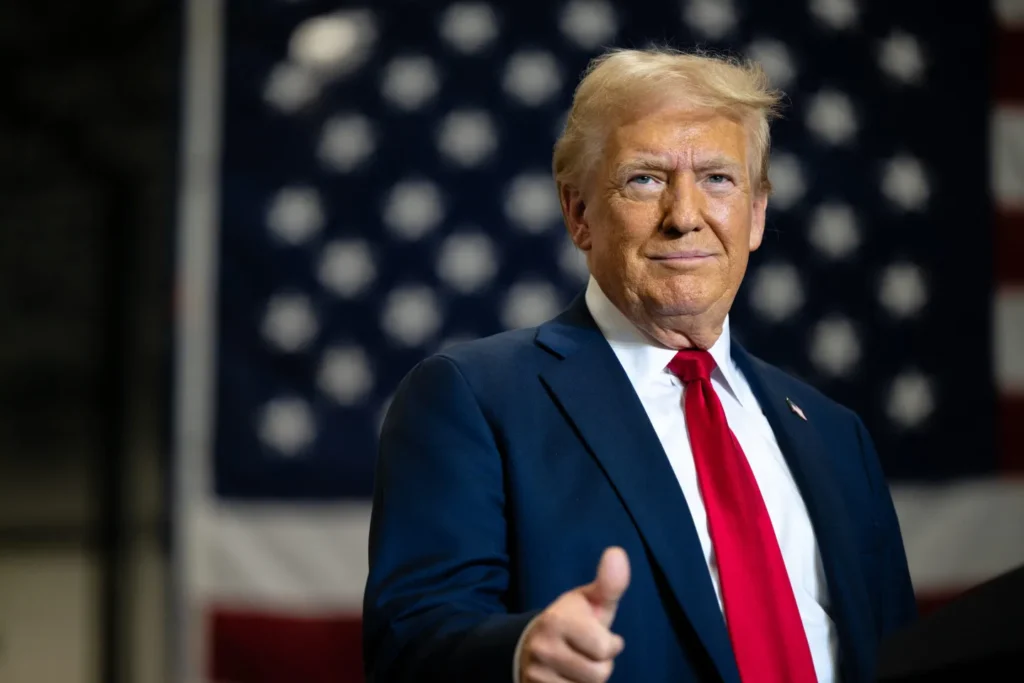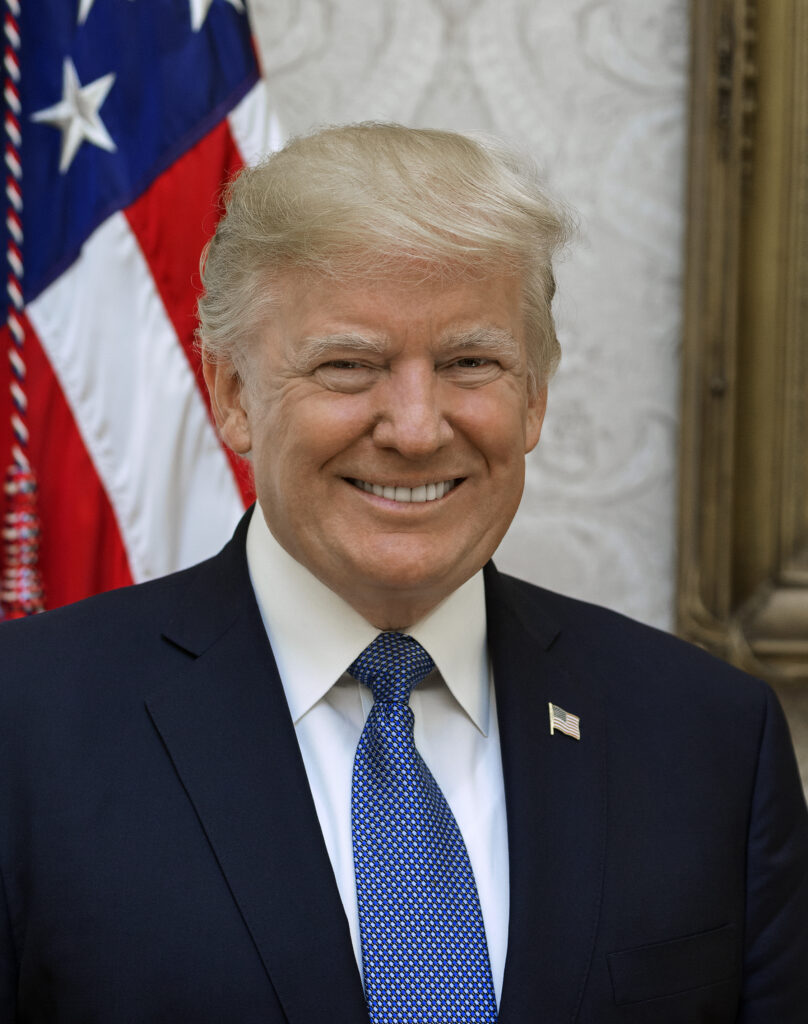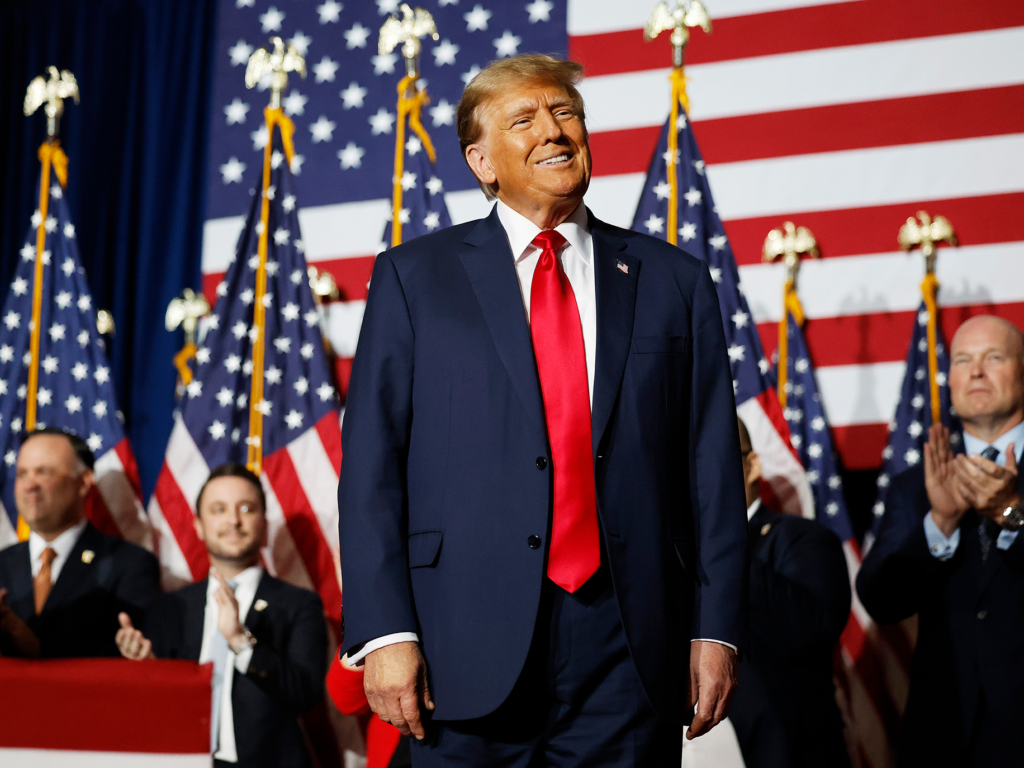Donald Trump, born on June 14, 1946, is a prominent American businessman, media personality, and political figure who served as the 45th President of the United States from January 20, 2017, to January 20, 2021. Trump is known for his unconventional approach to politics, his influential presence in the media, and his significant impact on American conservatism. His career and legacy have sparked intense debate and controversy, making him one of the most polarizing figures in contemporary American politics.

Early Life and Business Career
Donald John Trump was born and raised in Queens, New York City, and attended the New York Military Academy. He later graduated from the Wharton School of the University of Pennsylvania in 1968. After college, he joined the Trump Organization, a real estate company founded by his father, Fred Trump. Throughout the 1970s and 1980s, Trump expanded the family business, focusing on high-profile real estate projects, including hotels, casinos, and luxury apartments in New York City and other locations. He became known for his extravagant lifestyle, self-promotion, and the “Trump” brand, which he expanded through ventures in various industries, including entertainment.
In 2004, Trump became a reality TV star with The Apprentice, a business competition show that cemented his national celebrity status. The program was popular and showcased Trump’s reputation as a successful businessman, with his catchphrase “You’re fired!” becoming iconic.

Political Career and 2016 Presidential Campaign
Trump had previously shown political interest but formally entered the presidential race as a Republican candidate in 2015. His campaign resonated with many Americans who felt disillusioned by the political establishment. With slogans like “Make America Great Again” (MAGA), Trump focused on issues like immigration reform, economic nationalism, and a foreign policy of “America First.” His campaign was characterized by direct and often divisive rhetoric, especially regarding immigration, trade, and criticism of mainstream media.
Despite widespread skepticism and a highly unconventional campaign, Trump won the 2016 Republican nomination and ultimately defeated the Democratic candidate, Hillary Clinton, in the electoral college, despite losing the popular vote. His victory was met with both celebration and protest, as many saw his election as a challenge to traditional political norms.
Presidential Achievements and Policies
During his presidency, Trump pursued an agenda focused on tax cuts, deregulation, and conservative judicial appointments. His administration passed the Tax Cuts and Jobs Act of 2017, which significantly reduced corporate tax rates and aimed to stimulate economic growth. Trump also placed three justices on the U.S. Supreme Court, establishing a conservative majority that influenced landmark rulings on issues like abortion and gun rights.
In foreign policy, Trump adopted a more isolationist stance. He renegotiated the North American Free Trade Agreement (NAFTA) into the United States-Mexico-Canada Agreement (USMCA) and imposed tariffs on several countries, including China, in an effort to address trade imbalances. Trump was also the first sitting president to meet with a North Korean leader, Kim Jong-un, though significant progress on denuclearization was limited.
On immigration, Trump’s policies were some of the most contentious. His administration enacted a “zero tolerance” policy at the U.S.-Mexico border, leading to the separation of families and intense criticism from both domestic and international communities. He also implemented travel restrictions on several Muslim-majority countries, arguing it was necessary for national security, though opponents deemed it discriminatory.

Impeachments and Post-Presidential Controversies
Trump became the third U.S. president to be impeached, first in 2019 over allegations of pressuring Ukraine to investigate Joe Biden, and again in 2021 for inciting an insurrection following the Capitol riot on January 6. The Senate acquitted him both times, though the second impeachment trial saw several Republican senators break ranks and vote for conviction.
Since leaving office, Trump has remained highly influential within the Republican Party, continuing to attract a loyal base of supporters. His claims of widespread voter fraud in the 2020 election have fueled ongoing debates about election integrity. He announced his candidacy for the 2024 presidential election, which has deepened division within the Republican Party and among the broader electorate.
Legacy and Impact
Donald Trump’s legacy is complex and deeply polarized. Supporters praise his presidency for prioritizing American jobs, implementing economic reforms, and reshaping the judiciary. Critics argue that his administration fostered division, weakened democratic norms, and disregarded environmental and human rights protections.
Regardless of one’s political stance, Trump’s influence on American politics is undeniable. He shifted the Republican Party toward a populist, nationalist platform, reshaping American conservatism. His style and approach to governance have left a lasting impact on both U.S. politics and international relations, and his role in future elections is a topic of intense speculation. Trump remains a central figure in political discourse, continuing to mobilize a significant segment of American society while sparking debate about the future direction of American democracy.